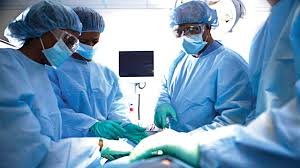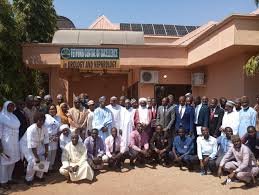The Nigerian government has revealed that healthcare-associated infections (HAIs) are placing a significant financial burden on the country’s healthcare system, costing an estimated N7.2 trillion in 2023.
Tochi Okwor, Coordinator of the National Infection Prevention and Control Programme at the Nigeria Centre for Disease Control and Prevention (NCDC), disclosed this information during the inauguration of the national Infection Prevention and Control Technical Working Group (IPC TWG) in Abuja on Monday.
Mrs. Okwor stated, “The total economic cost of healthcare-associated infections in Nigeria has been estimated to be up to 4.5 billion dollars in 2023,”
citing a report by WaterAid Nigeria.
She added, “The cost of treating these infections as a proportion of our total healthcare expenditure in 2023 has been estimated to be 3.8 per cent.”
HAIs are infections that patients acquire while receiving treatment for medical or surgical conditions in healthcare settings. These can occur during procedures, from the use of medical devices, or due to pathogen transmission in healthcare environments.
Mrs. Okwor emphasized the prevalence of HAIs in hospitals and primary health centers, attributing it to low levels of prevention and control measures. She noted that the economic cost of such infections amounts to approximately 0.94 percent of the country’s GDP.
Chukuma Anyadike, Director of Public Health at the Ministry of Health, underscored the importance of infection prevention and control in healthcare settings.
He said. “Compelling evidence shows that up to 70 per cent of healthcare-associated infections can be prevented by implementing effective IPC interventions, investing in IPC is one of the most cost-effective measures available.”
Mr. Anyadike highlighted the potential benefits of improved hygiene practices, stating, “Every dollar invested in improving hand hygiene can save about US$ 16.50 in reduced healthcare expenditure.”
The Nigerian government has taken steps to address the issue, including developing a national IPC manual with specific guidelines for healthcare workers and training over 100 IPC focal persons to become professionals working in health facilities nationwide.
Muhammad Pate, Coordinating Minister of Health and Social Welfare, represented by NCDC Director-General Jide Idris, emphasized the importance of the newly inaugurated Technical Working Group.
“Having a national IPC Technical Working Group is an important national-level indicator to track the National implementation of the Global Action Plan on IPC,” he said.
The establishment of the TWG aligns with the Global Action Plan on Infection Prevention and Control 2024-2030, recently approved by the World Health Assembly.


























